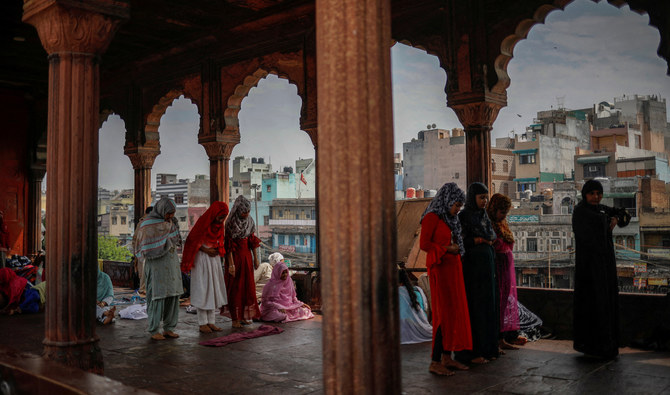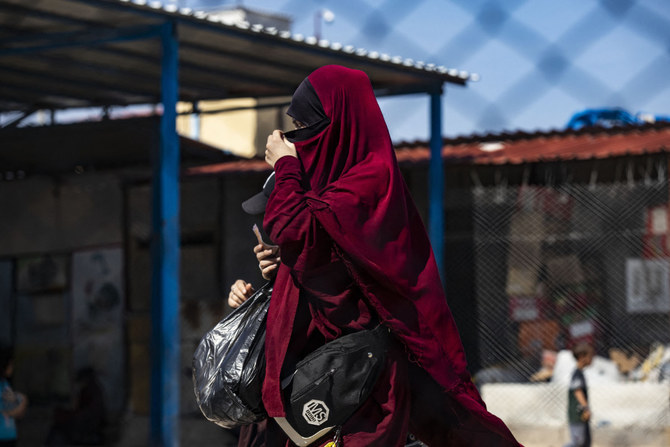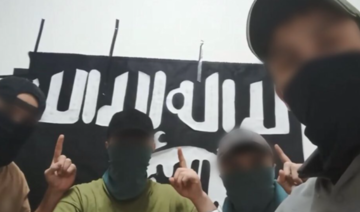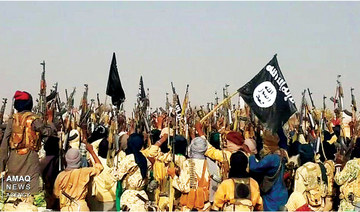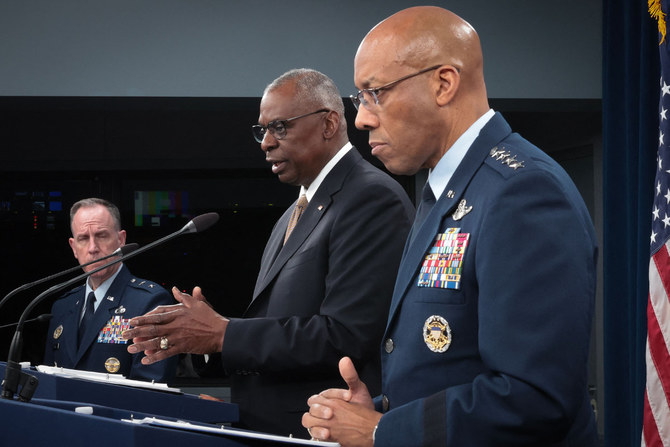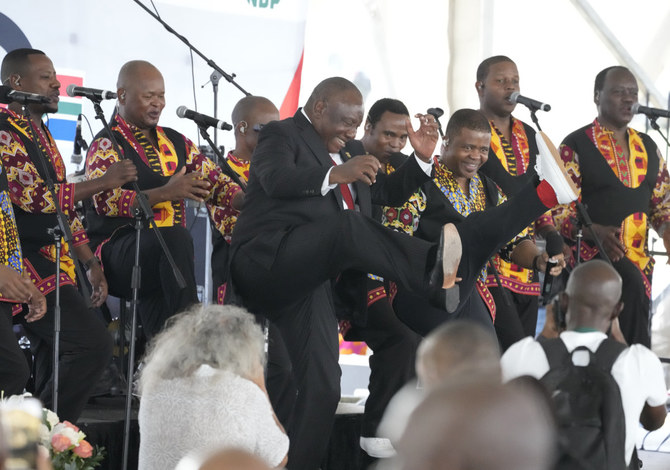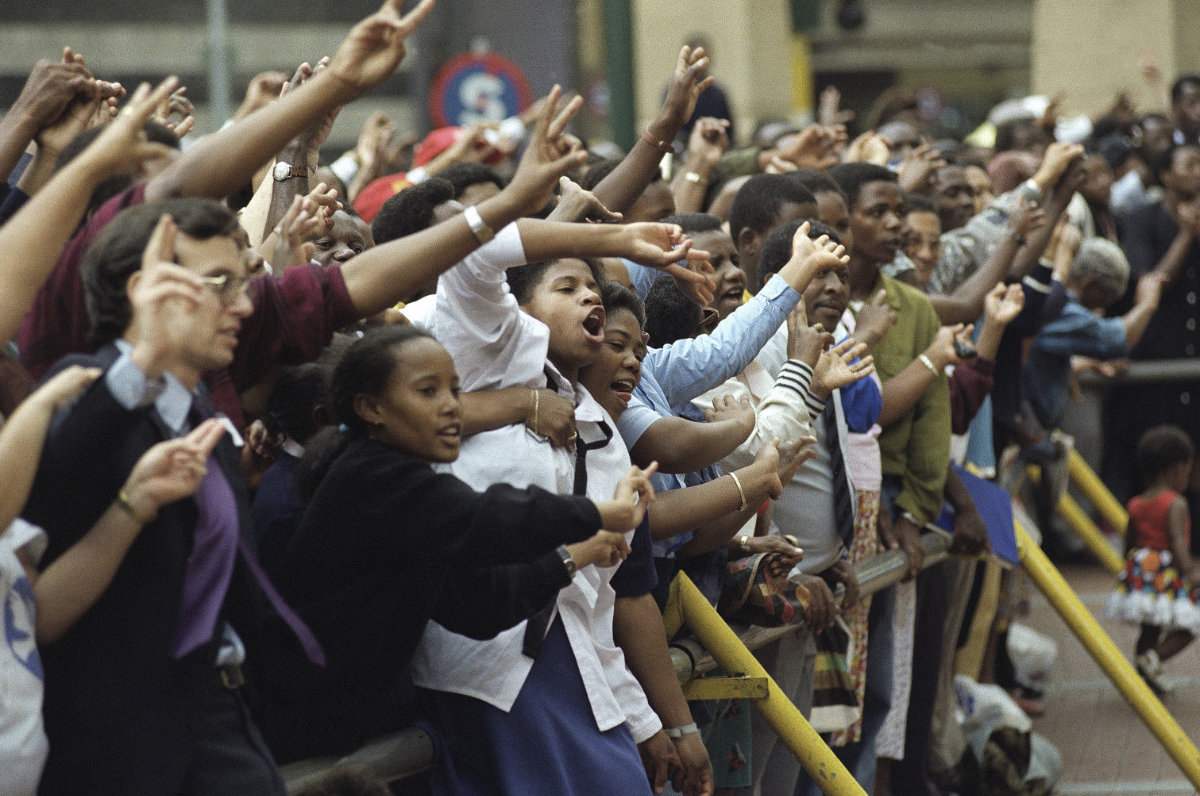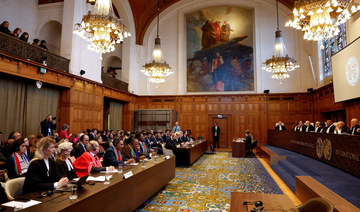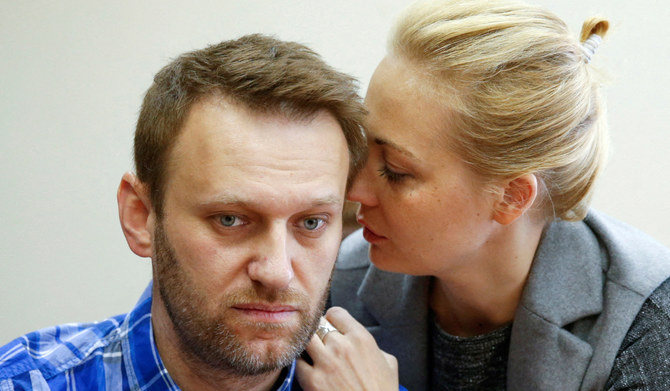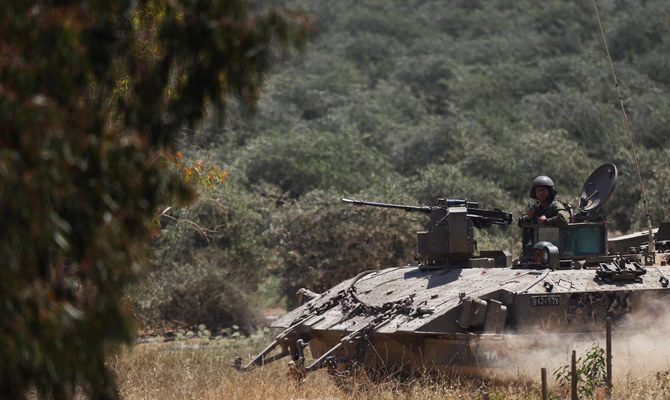Hours after Hamas attacked southern Israel on Oct. 7, a WhatsApp message purporting to list the names of 17 Indian Hindus killed or wounded in the assault went viral in India, drawing horrified reactions. But the list was fake — none were hurt.
In the following weeks, hundreds of messages referencing the conflict between Israel and the Palestinian group spread rapidly on Indian social media accounts, said fact-checkers and researchers documenting online disinformation about India’s Muslim minority.
Many of those messages warned Hindus that their safety could be at risk from Muslims if the Hindu nationalist Bharatiya Janata Party (BJP) loses power in next year’s election.
“Every local and global incident is used to convey the message that Muslims are evil, that Hindus need to be afraid,” said Bharat Nayak, an independent fact-checker in the east Indian state of Jharkhand.
“When there isn’t a current incident, past incidents are recycled with doctored images and videos, to say: if Hindus are to stay safe, vote for BJP,” Nayak, who tracks disinformation and hate speech on viral WhatsApp messages, told the Thomson Reuters Foundation.
Islamophobic and antisemitic hate speech have surged worldwide since Oct. 7, with millions of abusive posts on Facebook, Instagram, TikTok and X — formerly Twitter, according to the Institute for Strategic Dialogue think-tank, and the Anti-Defamation League, a nonprofit.
In India, Muslims make up about 14 percent of the nation’s 1.4 billion Hindu-majority population. With a general election due by May 2024, and several state elections this month, disinformation and hate speech targeting them are on the rise, fact-checkers and tech experts said.
“Conflicts, elections will always spawn these kinds of narratives (and) the nature of this conflict is an opportunity to grind a Hindu versus Muslim axe,” said Marc Owen Jones, an associate professor at Hamad bin Khalifa University in Qatar.
“It is being weaponized by state actors to rally the bases with divisive rhetoric and sensationalist misinformation,” said Jones, who studies misinformation.
Asked to comment, Tom Vadakkan, a national spokesperson for the BJP, said: “The BJP and the government do not encourage any hate speech against any community or person.”
Speaking during a visit to the White House in June, Prime Minister Narendra Modi said “there is no space for any discrimination.”
RELIGIOUS STRIFE
India has a long history of communal clashes. During the BJP’s rule over the past decade, party members and allies have been accused by human rights groups of inflammatory speech against Muslims that incites violence on the ground.
Hashtags including #coronajihad and #lovejihad have gone viral in recent years, and been used to falsely accuse Muslims of deliberately spreading the coronavirus and forcefully converting and marrying Hindu women.
Deadly clashes have broken out over false rumors on WhatsApp and Facebook of Muslim gangs kidnapping children.
The BJP, which is widely forecast to win a third term in 2024, has launched a national campaign to woo Muslim voters. A senior Muslim party leader told Reuters this month that Hindu-Muslim violence only makes headlines now because political rivals use it to target the party.
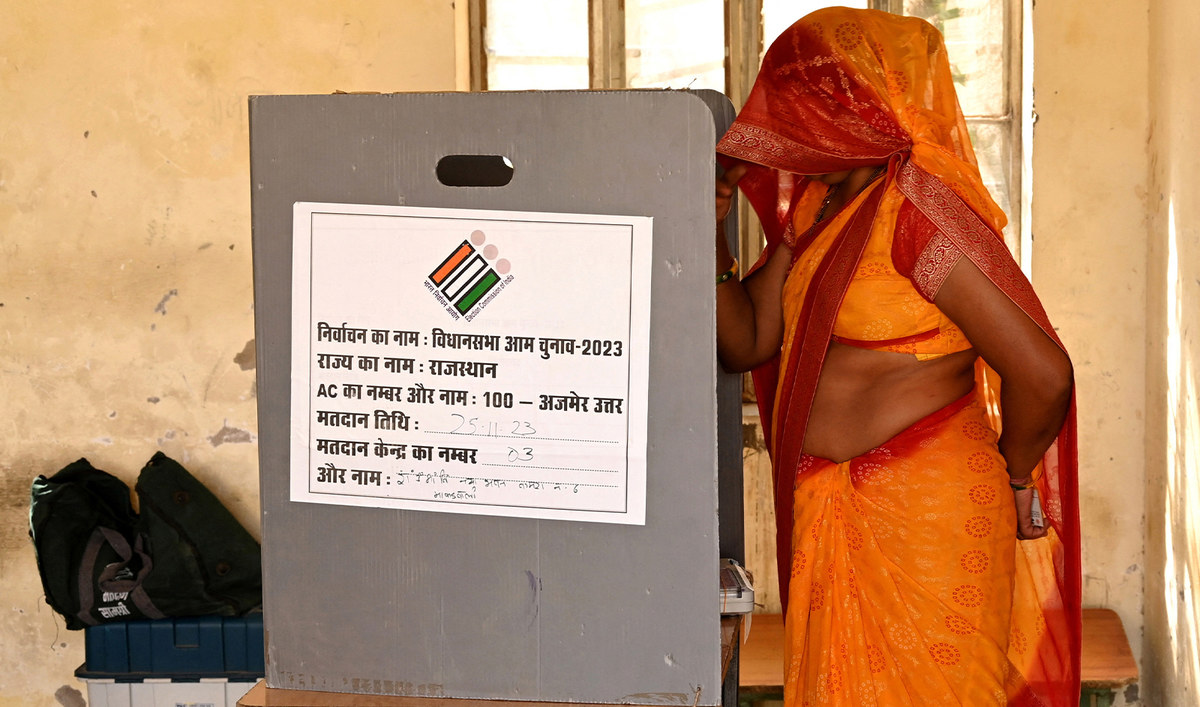
A woman casts her vote inside a polling station during Rajasthan state assembly election in Ajmer, India, on November 25, 2023. (REUTERS)
Elections often lead to an increase in anti-Muslim hate speech, researchers have found, with such incidents averaging more than one a day in the first half of 2023, mostly in states with upcoming elections, according to Hindutva Watch, a Washington-based group monitoring attacks on minorities.
Fact-checking organization BOOM Live showed there was a surge in misinformation before polls in southern Karnataka state in May, which the opposition Congress party went on to win.
“Disinformation targeting Muslims has become more vitriolic and aggressive, with most of the false claims reinforcing negative stereotypes,” said Karen Rebelo, deputy editor at Boom.
Meta Platforms, owner of Facebook and Instagram, has said it has added more fact-checkers in India, “making it the country with the most third-party fact-checking partners globally across Meta.”
“We have a comprehensive strategy in place for elections, which includes detecting and removing hate speech and content that incites violence, reducing the spread of misinformation ... (and) partnering with election authorities to action content that violates local law,” a Meta spokesperson said.
Video sharing platform YouTube removes “violative content as quickly as possible when flagged to our attention,” the company said, adding that its team monitors trends in “risky forms of content” and addresses them before they become larger issues.
The X social media platform did not respond to a request for comment.
TAKEDOWN REQUESTS
With its young population, India is among the biggest markets for social media platforms, with more than 300 million users on Facebook, and about 500 million each on YouTube and on WhatsApp.
Social media firms have frequently clashed with Indian authorities over content moderation.
Modi’s government banned the short-form video app TikTok in 2020 over security concerns, and has tightened social media regulation, requiring the swift removal of posts deemed to be harmful, and demanding traceability of information.
Meta received nearly 64,000 content removal requests from the Indian government in the second half of 2022, its data shows, more than a quarter of all requests.
Google’s YouTube removed more than 2 million videos in India in April-June of this year, more than in any other country.
But government officials mainly target posts by dissidents and human rights campaigners including Muslim activists, not harmful content spread by BJP leaders or their allies, said Jayshree Bajoria, associate director for Asia at Human Rights Watch, a global non-profit.
“BJP leaders or BJP supporters who make hateful comments against Muslims or other minorities, inciting violence, are not held accountable,” Bajoria said.
The information technology ministry and the home affairs ministry did not respond to requests for comment.
After Facebook whistleblower Frances Haugen leaked internal documents in 2019 showing the platform’s struggles monitoring hate speech in countries including India, Meta agreed to conduct an independent human rights impact assessment.
Meta has not released the full report, despite calls from human rights groups to do so.
Meta has “clear policies against hate speech and removes hateful content that targets anyone based on their religion, nationality, ethnicity or caste,” the spokesperson said.
‘AMPLIFYING BIAS’
It is not just in India: social media companies failed to act on 89 percent of posts containing anti-Muslim hatred and Islamophobic content reported to them, the Center for Countering Digital Hatred (CCDH), a British non-profit, said in a report last year.
Platforms similarly failed to act on anti-Semitism, anti-Black racism, and misogynist abuse, CCDH found.
“The platforms seem more intent on shutting down Muslim users than shutting down hate speech,” said S.Q. Masood, a minority rights activist in the Indian city of Hyderabad, who has filed two complaints about hate speech on social media.
When nearly 300 people were killed in a train accident in eastern Odisha state in June, Boom and Alt News documented at least a dozen false allegations about the incident — from the station master being Muslim and in hiding, to there being a mosque near the track.
“These messages go viral because there is support for these narratives in society,” said Kiran Garimella, an assistant professor at the Rutgers School of Communication and Information in New Jersey, who studies misinformation on WhatsApp.
“These platforms just make it easy to amplify the biases.”



